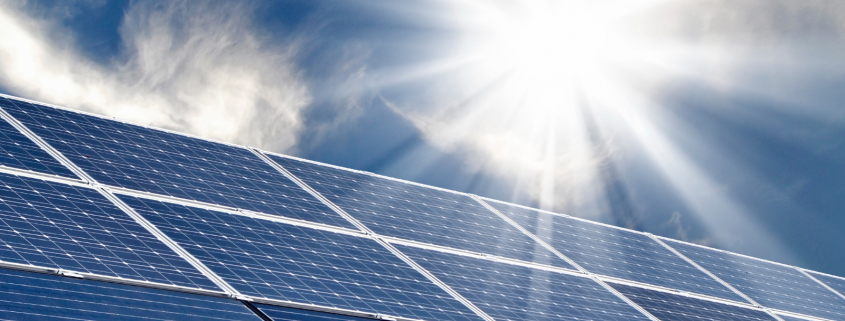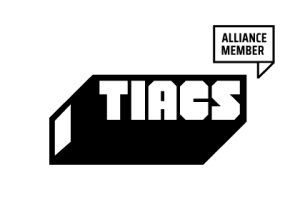A beginner’s guide to solar power in Australia
As solar energy becomes an increasingly viable option for Australian homes and businesses, you might have found yourself considering installing solar panels on your own property. But where to start? There’s a lot of information available out there, so the whole process can quickly become confusing and overwhelming. In this post, we’ve compiled a beginner’s guide to solar power in Australia. Read on to learn the answers to some of our frequently asked questions about solar energy.
Why solar?
One of the biggest reasons why people invest in solar energy is because of the environmental benefits solar brings. The Climate Commission reported that a 1.5 kilowatt solar photovoltaic (PV) system can save a whopping 2.2 tonnes of CO2 greenhouse emissions from being emitted each year. As sustainability continues to be ever more important in a rapidly changing world, installing solar is an excellent way for individuals to reduce their carbon footprint.
Another reason to consider investing in solar in 2021 is because it happens to be more affordable now than ever. The prices of solar have been rapidly decreasing over the past several years. As product manufacturers have achieved economies of scale with production, and installation methods have been simplified, solar energy has become a cost-effective option for families and businesses nationwide. As of December 2020, more than 2.66 million rooftop solar power systems had been installed across Australia. The numbers have made it abundantly clear: now is the time to invest in solar.
How does solar power work?
At its core, solar power works by converting energy from the sun into electricity. When your roof has been installed with solar photovoltaic (PV) systems (that is, solar panels), sunlight is harnessed by the panels and then transmitted to an inverter. This inverter then converts DC to AC, producing the electricity that’s required to power your home.
If you’ve installed a battery along with your solar panels, excess energy produced by solar panel systems can be stored for later use. This gives you more independence as you don’t have to rely as much on the central energy grid.
What resources do I need to be able to use solar?
Although the price of solar is decreasing rapidly in Australia, you’ll still need financial resources to be able to install and use solar. The good thing is that this is more or less a one-time fee as solar panels demand minimal maintenance over the years. In addition to this, the Australian Government has introduced renewable power incentives for households and small businesses across Australia, meaning that you may be eligible for a rebate under the Small-scale Renewable Energy Scheme (SRES).
Which solar panels should I choose for my home?
Like any product, not all solar panels are made equal. That’s why it’s important to do your research and to seek professional help when it comes down to choosing and installing solar panels for your home. Your solar panels spend all their time outdoors in rain, hail, and shine, so it’s crucial that you choose a solar panel brand that is known for its durability and high quality. Because every home is different, it’s best to contact an expert who will help you make the best decision for your individual circumstances.
Is solar energy cost-effective?
As mentioned previously, solar energy is more affordable than ever in 2021. Once installed, a solar system demands little maintenance over the years, meaning that you’re essentially paying a one-off fee when you purchase your panels and get them installed. Once you’ve installed solar panels on your roof, you no longer have to rely as heavily on the central energy grid. This means that you can significantly reduce, or even completely wipe out your electricity bills. The amount of money you save depends on how many panels you get installed and your overall energy usage, but according to Energy Australia, a solar system without batteries has a payback period of 3 to 5 years.
What happens to excess electricity?
If you choose to install batteries on your property as well as solar panels, you’ll likely save more on electricity bills because you’ll be able to store the excess electricity generated from your panels in the batteries. This means that you can use this energy at a later time, for example, during the evening hours, on cloudy days, or during a storm.
Excess electricity generated by solar panels can also be exported back onto the central grid. Although you won’t receive cash for exporting this electricity, you can still save money by receiving a credit on your electricity bill. However, if your system has been sized and installed correctly, most of the electricity generated by the panel will be consumed, not fed back onto the grid.
How many solar panels are needed to run a house?
The number of solar panels required to ‘run a house’ vary depending on several factors. Your energy expert will take into account factors like your daily energy usage, the amount of sunlight exposure your house or property receives, and your energy goals. Since there’s no ‘one-size fits all’ approach to solar energy, you’re more likely to receive the full benefits of solar panels when you seek a professional opinion.
Do solar panels still work when it’s cloudy?
Solar panels function at their most optimal when there is sunlight, however, some energy can still be harnessed on a cloudy or rainy day. There are panels and inverters on the market that can lower the impact from shade and there are panels that can even operate effectively in partly cloudy and shady conditions. If cloudy weather is a concern to you, be sure to bring this up with your solar provider.
Do I need to get my solar panels certified?
Every solar system installed on a property must be certified by CEC and approved by the grid provider. At Jim’s Energy, we’ll streamline this process for you by getting your solar panel systems certified on your behalf. This usually happens within a few days, so you can start using your new energy in no time.
Thinking about going solar? Contact Jim’s Group to find an expert near you and make the switch to start saving on your energy bills today. Call us on 131 546 for an obligation-free quote.
Related Jim’s Group News
– Tips to Reduce Your Household Power Bill and Make Your Home More Energy Efficient.
– 8 Tips for Keeping Your House Warm This Winter.
– How Much Money Can I Save With Solar Energy?
– What’s the Best Time of Year to Get Solar Panels Installed?
– Everything You Need to Know About the Australian Government Solar Rebate.







